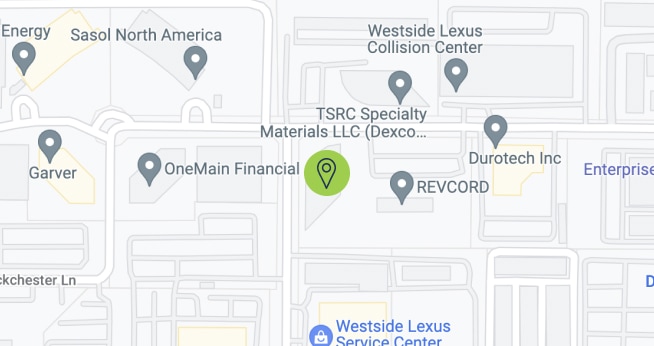Does Texas have comparative fault laws?

Texas operates under the “modified” comparative negligence rule. Under this system, you can pursue damages even if you are partially at fault for an accident. However, you cannot recover any compensation if you are more than 50 percent responsible.
This system can significantly affect the outcome of your personal injury claim. Knowing how comparative negligence works is crucial to understanding how much compensation you may be eligible to recover.
The Basics of Comparative Fault
In the most basic sense, comparative fault means that a judgment in any car accident case will assign a certain percentage of fault to each driver according to how carelessly they acted. The more at-fault a driver is, the less money they will be able to recover in damages. Texas is among the many states that apply comparative fault in some form. A few other states still use a much stricter law called contributory negligence.
If one driver files an injury claim, each side may try to pin as much blame on the other side as possible. The plaintiff wants to minimize their share of fault and maximize the defendant’s to secure as much money as possible. Likewise, the defendant wants to minimize their share of fault and maximize the plaintiff’s to pay out as little money as possible. In the end, if the plaintiff wins, their monetary reward will be reduced by whatever percentage – if any – they are found to be at fault.
What Is the Texas Comparative Fault Law?
Many at-fault states operate under what is known as “pure” comparative fault. This concept allows any party to recover compensation for accident-related losses as long as they are not entirely to blame for the accident.
However, Texas runs under a “modified” comparative fault system. The Texas Comparative Fault Law, also known as proportionate responsibility, still allows an injured party to recover compensation even if they were partially responsible for the accident. However, if the injured party is more than 50 percent at fault, they are ineligible to recover any compensation under Texas law. This is often called the “51 percent rule.”
Modified Comparative Fault: The 51 Percent Rule
The type of comparative fault applied in Texas is called “modified” comparative fault, meaning that there are additional rules beyond the basics of comparative fault. In Texas, the additional rule courts apply is called the 51 percent rule. This rule says that no party can be awarded monetary damages in any kind of judgment if they are found to be 51 percent or more at fault.
The 51 percent rule in Texas means that the sliding scale of damages you can actually recover runs from 100 percent of what you are awarded if you are found to be 0 percent at fault to 50 percent of what you are awarded if you are found to be 50 percent at fault. Once you hit 51 percent fault, you will not be able to win any money at all.
Will Comparative Fault Reduce the Amount of My Injury Claim?
The comparative fault system can reduce the amount of your injury claim. The Texas system reduces your compensation by an amount equal to your percentage of fault. For example, if you are 20 percent at fault for an accident, your compensation will be reduced by 20 percent.
It’s important to note that insurance adjusters will try to pin as much blame on you as possible to reduce the payout they must make. Having an experienced personal injury lawyer from Fleming Law on your side can make a significant difference in the outcome of your claim. With over 30 years of experience, we can help you fight for the full and fair compensation you deserve. Contact our Houston auto accident lawyer today.
How Can Fault Be Proven in an Accident?
Establishing fault in an accident can involve multiple types of evidence and often requires both legal knowledge and a thorough investigation. Here are a few ways insurance companies and attorneys prove fault:
- Police reports – A police report is a vital document that can provide an unbiased third-party perspective of the accident.
- Witness statements – Witnesses can provide crucial details about the accident and corroborate your version of events.
- Photos and videos – Pictures or videos from the scene can clearly show what happened and help establish who was at fault.
- Expert testimony – Accident reconstruction experts can recreate the incident, providing valuable insight into the causes of the accident.
- Medical records – These can link your injuries directly to the accident, which is essential in a personal injury case.
The highly experienced legal team at Fleming Law is skilled at gathering and presenting compelling evidence to prove fault in personal injury cases.
Examples of How Comparative Fault Works in Texas
Example 1
Let’s consider an example to illustrate how comparative fault could apply in a real case. This example is simplified and does not necessarily reflect a realistic determination of fault.
Mary is driving from her job in downtown Houston to her home in the suburbs at the end of the day. The road is still slick from yesterday’s rain, but she’s driven this route hundreds of times before and nonetheless decides to drive 5 mph over the speed limit. Mary is driving in the left lane. John suddenly cuts across and tries to make a left turn directly from the right lane beside her into a parking lot. Mary is unable to stop, and the two cars collide.
Mary files a personal injury claim. At trial, the jury decides that John was 80 percent at fault because turning in front of another car is obviously dangerous. However, they also hold that Mary was 20 percent at fault, because if she were not driving too fast on a slick road, she might have been able to stop. Mary’s $100,000 monetary reward is reduced by 20 percent, leaving her with $80,000.
Example 2
Imagine you were in a car accident where the total compensable losses, including medical bills, lost wages, and property damage, amounted to $100,000. After careful investigation, the insurance companies determined that the other driver was 80 percent at fault because they were speeding. However, you are found 20 percent at fault because you failed to signal before turning.
You could still recover compensation in this situation because you were less than 51 percent at fault. But the comparative fault rule would apply. You would only be able to recover 80 percent of the total compensable damages, which equals $80,000. That is the total damage amount ($100,000) minus the proportion corresponding to your degree of fault (20 percent).
Contact a Texas Personal Injury Lawyer
Understanding the complex world of Texas’ comparative fault laws can be daunting. If you have suffered injuries in an accident, the experienced attorneys at Fleming Law are here to guide you on your legal journey and fight for the compensation you deserve.
At Fleming Law, our commitment to our clients sets us apart. Our firm is home to board-certified specialists – a designation earned by a select few attorneys in Texas who have proven their expertise through rigorous examinations, documented trial experience, and positive evaluations from peers and judges. This distinction ensures that you will work with a team of professionals who are recognized for their good work in their field.
What truly distinguishes us from other Houston-based law firms is our personalized and attentive approach. Our clients are always in direct contact with the attorney handling their case. We keep you involved and informed, tailoring our services to your unique needs and objectives. Contact us today for a free consultation to learn more about how we can help you.

Brendan received his JD from South Texas College of Law and his MBA from Baylor University. He then began his legal career as in-house counsel for a publicly-traded company, advising on matters such as mergers and acquisitions, securities, compliance, and general corporate transactions. He then worked at a national law firm in which he represented commercial banks, private equity firms, and business owners in complex transactions before joining Fleming Law, Brendan uses his considerable knowledge of business-related matters by working on cases involving business law, real estate law, and contracts. Connect with me on LinkedIn








